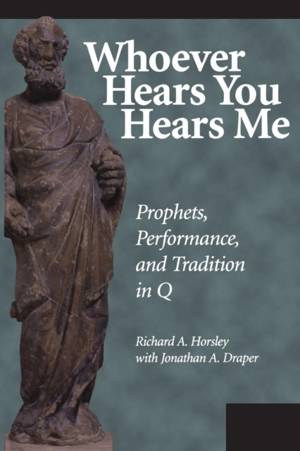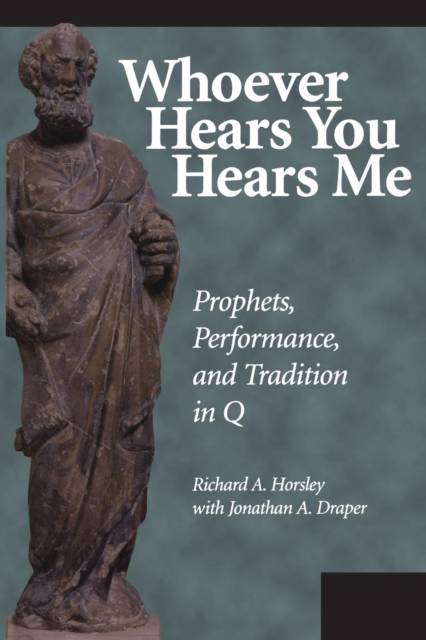
Je cadeautjes zeker op tijd in huis hebben voor de feestdagen? Kom langs in onze winkels en vind het perfecte geschenk!
- Afhalen na 1 uur in een winkel met voorraad
- Gratis thuislevering in België vanaf € 30
- Ruim aanbod met 7 miljoen producten
Je cadeautjes zeker op tijd in huis hebben voor de feestdagen? Kom langs in onze winkels en vind het perfecte geschenk!
- Afhalen na 1 uur in een winkel met voorraad
- Gratis thuislevering in België vanaf € 30
- Ruim aanbod met 7 miljoen producten
Zoeken
Whoever Hears You Hears Me
Prophets, Performance, and Tradition in Q
Richard A Horsley
Paperback | Engels
€ 101,95
+ 203 punten
Omschrijving
Here is a challenge to New Testament scholars to engage in a fresh analysis of Q. The authors argue that recent American study of Q has been dominated by those trained in form-criticism and oriented to Hellenistic rather than Judean culture, resulting in the extreme atomization of the Q sayings and reconstructions of Jesus and his first followers as Cynics, and in the de-politicization and de-judaization of the Q materials and Jesus. Also determinative of the current situation has been the assumption in New Testament studies of textuality, of an ethos of written communication and of textual models for analysis. However, as is recently becoming clear from studies of oral and written communication, the communication situation of Jesus and his first followers was almost certainly oral. Horsley and Draper therefore contend that it is time the interpretation of Q took seriously the oral communication environment in which this material developed and continued before Matthew and Luke incorporated it into their Gospels. This book, then, applies approaches to oral-derived literature from oral theorists, socio-linguistics, ethnopoetics, and the ethnography of speaking to the Q materials. The result is a developing theory of oral performance that generates meaning as symbols articulated in the appropriate performance situation resonate with the cultural tradition in which the hearers are grounded. Richard A. Horsley is Professor of Classics and Religion at the University of Massachusetts, Boston. Jonathan A. Draper teaches at the University of Natal, South Africa.
Specificaties
Betrokkenen
- Auteur(s):
- Uitgeverij:
Inhoud
- Aantal bladzijden:
- 336
- Taal:
- Engels
Eigenschappen
- Productcode (EAN):
- 9781563382727
- Verschijningsdatum:
- 1/11/1999
- Uitvoering:
- Paperback
- Formaat:
- Trade paperback (VS)
- Afmetingen:
- 152 mm x 228 mm
- Gewicht:
- 498 g

Alleen bij Standaard Boekhandel
+ 203 punten op je klantenkaart van Standaard Boekhandel
Beoordelingen
We publiceren alleen reviews die voldoen aan de voorwaarden voor reviews. Bekijk onze voorwaarden voor reviews.









